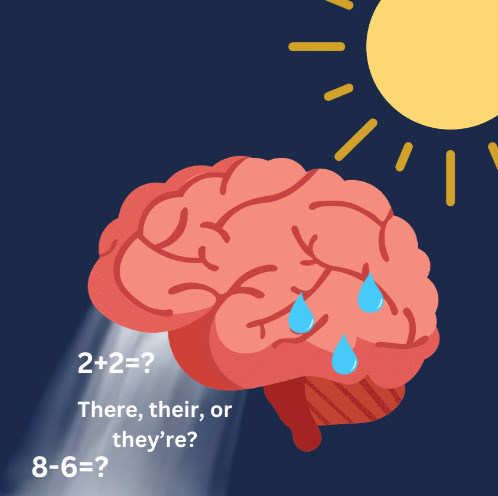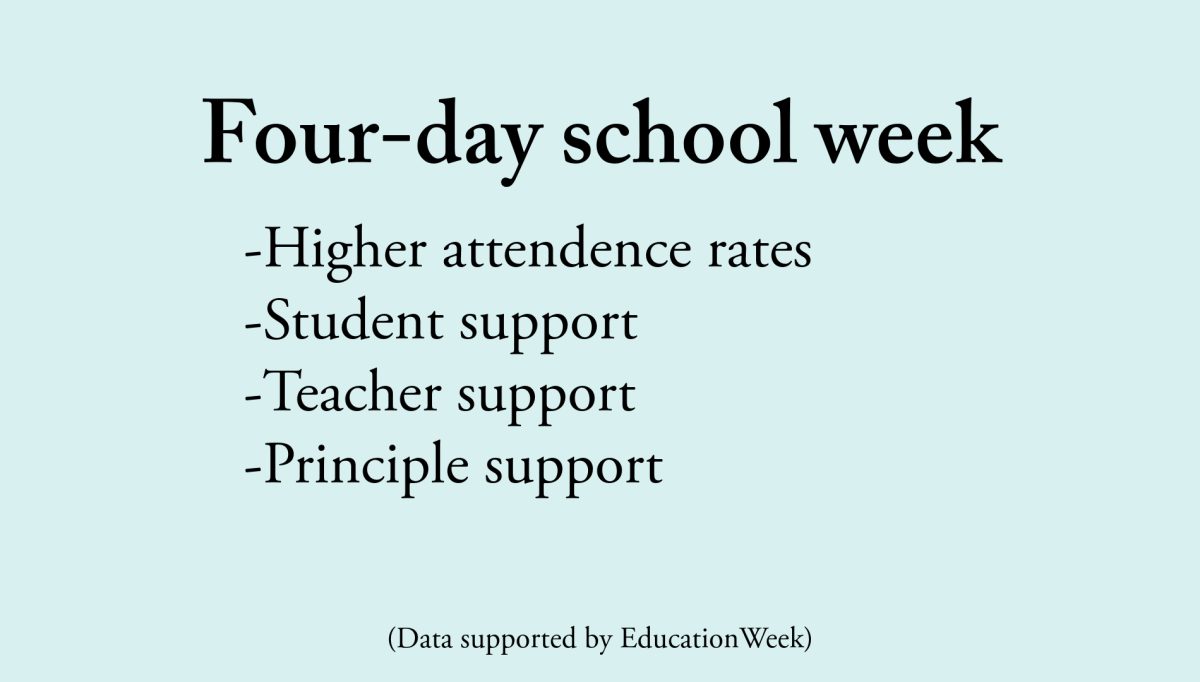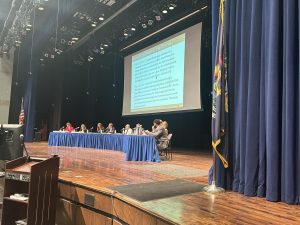Administration picks up a new phone policy
September 26, 2022
As the school year started, a new Off and Out of Sight policy came into charge, meaning phones can only be out before and after school, during lunch and during passing time. High school students had to get comfortable with this new policy. The policy was set into action to decrease the usage of phones in the school.
Shannon Sugamele, who teaches American Literature and Power of Language, has been teaching for 5 years. She has experienced lots of students on their phones when she’s teaching.
“I am very supportive of the new phone policy,” Sugamele said. “I know that a lot of students are not a fan, but as a teacher in the building, it has alleviated so many of the problems that were happening in classrooms. I genuinely think the first two weeks of this school year have gone so smoothly. And I think that policy contributes a lot to that.”
In 2016, Butler Hospital ran a study about the effect of computers on human behavior that showed a connection between anxiety symptoms and problematic phone usage. During the study, a questionnaire was directed among 143 women and 165 men. The majority of those who scored high on the fear of missing out tend to overuse their phones. These individuals also score high on depression and anxiety scales because excessive use of smartphones interferes with social activities and can increase depression.
South social worker Doug Roby knows a lot about the effects phone usage has on students’ mental health, and knows how to help with phone addiction.
“Electronics are significant research tools and were at the time with the development of technology,” Roby said. “When it becomes a deterrent, then it (has) potential for addiction to develop to technology.”
Lots of students love to listen to music. Researchers from the MARCS Institute for Brain, Behavior and Development have found that music increases memory and tension as well as maximizes learning capabilities. The brain triggers particular emotions, memories, and thoughts, which often leads to more positive effects on mental health. Certain types of music are known to boost focus. Stephie Kosmas ’24 loves listening to music during school hours.
“In an extracurricular, like ceramics or art, it’s nice to put headphones on and be able to focus other than having people talk around you, and having that music play in the ears or being able to take a break is nice,” Kosmas said.
Playing music is a simple way of promoting relaxation as it releases tension in your muscles, carrying away any stress or anxiety.
“It’s essential for me because I’m not a super social person and just to be able to put headphones in and everyone to recognize ‘she doesn’t want to talk’ is nice,” Kosmas said. “I feel (that) without that, people make comments and when you have that music playing you don’t have to hear the stuff and deal with it.”
The phone policy is to maintain personal connections face-to-face versus social connections over technology. The current policy is not in effect during lunch, before school and after school. Once you’re in the classroom, the phone must be out of sight.
“I definitely think there is another way because it should be on a case-by-case basis,” Kosmas said. “It shouldn’t be mandatory in every class. I think it should have definitely been thought about instead of doing this. I think if students have to do it, adults have to do it too. Teachers, I’ve seen you with your phones out, I know you don’t follow the rules and if you can’t follow them, how are you supposed to expect other people to follow them?”
























































































